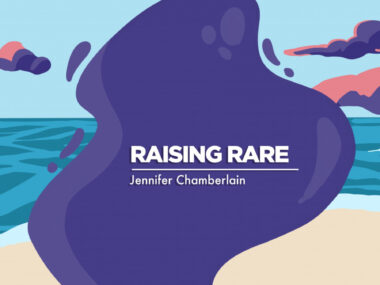Holding on to hope, even while dealing with burnout
Feeling out of control makes me question my ability to figure things out
Written by |

Hope is something I have often reflected on throughout my life. In fact, my first tattoo was of a Latin phrase commonly referenced in the cystic fibrosis (CF) world: “Dum spiro spero,” which means “While I breathe, I hope.”
But my perception of that phrase has changed over the years. When I got the tattoo, I felt far more hopeful.
Today, hope is challenging for me. I often feel helpless as I struggle with burnout-induced depression, which has looked different from my past episodes of depression. For me, previous episodes brought deep sorrow and heartache, but I remained lucid, even gaining more clarity about what truly mattered. I actually felt hopeful; everything mattered to me so intensely that I fought harder to find joy and happiness amid the tragedy of loving and losing others.
Hope sustained me during those episodes. I believed the world could be better, that I could feel better. I felt that I had agency; I knew what was within my control and understood how I could influence my circumstances. I never thought I could “hope away” CF or the bacterial infections in my lungs. But I certainly believed that exercising, doing my treatments, and taking my medications would help prolong my life.
The effects of burnout
Recently, though, burnout has perturbed my ability to feel hopeful. Life, for myriad reasons, just feels more chaotic, more random, and less controllable than ever. My trust in myself has also fractured, leading my internal ecosystem to resemble the external chaos I’m facing. It has been strange and challenging to no longer believe in my ability to figure things out.
As it turns out, this is not a novel experience — which is exactly why I’m writing about it. The loss of hope I’m experiencing due to burnout is actually one of the key insights of decades of depression research. It makes a lot of sense to realize that depression is less of a true assessment of circumstances — not that one’s circumstances can’t feel impossible — and more about our perception of our circumstances.
For me, one of the biggest drivers of this feeling of learned helplessness is my struggle with attention-deficit/hyperactivity disorder. The more things I try to juggle and control, the more fragile the entire enterprise feels, and the more any perturbation disrupts the delicate balancing act. This is why I have struggled to feel resilient lately. I have so much to accomplish in a limited amount of time, but no matter how hard I try, I feel like I never make a meaningful dent in my to-do list.
The truth is that this column is as much an offering to myself as it is to my readers. Because of burnout, I am struggling to feel hopeful that things will work out or that I am capable of figuring things out. I want to be hopeful. I don’t want to have a pit of anxiety in my chest and stomach every single day, fearful that the next obstacle will be the one that triggers a panic attack.
But that’s the point: Hope can only exist where there is uncertainty. Feeling hopeful about the future requires us to release the need to control everything. Hopelessness doesn’t stem from a lack of control, but from our desire to control things we can’t.
As hard as it is to grapple with burnout and learned helplessness, I still possess the agency to find reasons to hope. I can remind myself that the majority of challenges are transient, and that maybe the best thing I can do is to give myself a vote of confidence — not that everything will be perfect, but that I can handle whatever life throws my way.
Note: Cystic Fibrosis News Today is strictly a news and information website about the disease. It does not provide medical advice, diagnosis, or treatment. This content is not intended to be a substitute for professional medical advice, diagnosis, or treatment. Always seek the advice of your physician or other qualified health provider with any questions you may have regarding a medical condition. Never disregard professional medical advice or delay in seeking it because of something you have read on this website. The opinions expressed in this column are not those of Cystic Fibrosis News Today or its parent company, Bionews, and are intended to spark discussion about issues pertaining to cystic fibrosis.








Pilar
Acaban de diagnosticar a mi hija con FQ somos de México y como sabes acá no tenemos Trikafta y el leer tu reflexión me ubica en el contexto realidad de mi hija y lamento no haber sabido antes del como se sienten con esta enfermedad.
Gracias por compartir y que difícil es a veces ver con esperanza cuando no se tiene pronta esperanza de obtener Trikafta.😭